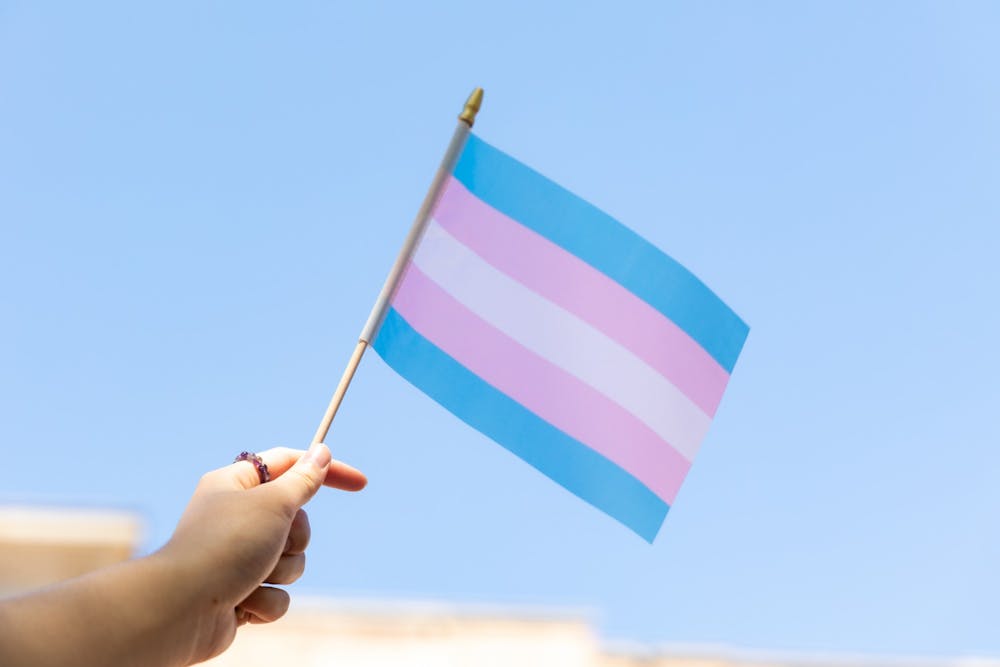"I think it's going to increase the discussion about how we help children through health care discussion and to make sure we're not encouraging kids to make decisions they're not ready to make," Burgin said.
He said he chose to sponsor this bill because of his concern about children receiving treatment and surgeries before they are ready.
“I just think we need to slow this process down and give people, I think, time to have more conversations,” he said.
Burgin said he is happy to talk to anyone concerned about this bill and does not condone any discrimination or harassment toward a person based on sexual orientation or gender identity.
Brittany Bate is a licensed physician and the owner of Be Bold Psychology and Consulting, which offers affirming therapy and consulting for transgender, gender-diverse and queer clients.
Bate said she has concerns about patients waiting for care, and that — much like the risks in delaying recommended medication for medical conditions — there are risks in delaying gender-affirming hormone therapy as well.
She said there will be a large increase in overall youth mental health problems, depression, anxiety and self-esteem issues if this bill passes.
“Gender-affirming care is absolutely suicide prevention for transgender youth,” she said.
Linden James, the director of outreach for iNSIDEoUT180 at the LGBTQ Center of Durham, said LGBTQ+ youth are at a greater risk for suicide and self-harm in general.
According to a 2020 study, more than 80 percent of transgender individuals have considered suicide and 40 percent have attempted suicide.
Another study published by the American Academy of Pediatrics found that 50.8 percent of transgender male adolescents had attempted suicide at some point in their lives. Similarly, 29.9 percent of transgender female adolescents and 41.8 percent of adolescents who identified as neither male nor female reported a previous suicide attempt.
Burgin said he recently spoke with someone who is concerned about the potential increase in suicidal ideation in youth that S.B. 560 could create. In response, Burgin said he encourages people to seek counseling and use the suicide prevention line, 988, if they have thoughts of self-harm.
To get the day's news and headlines in your inbox each morning, sign up for our email newsletters.
While counseling and therapy can be beneficial for people seeking treatment, James said therapy does not always work and is not always easily accessible.
“Not everyone can afford having that treatment, that pediatric psychiatry, so it's definitely posing a barrier,” they said. “I think that it is encouraging for people to receive treatment other than just medical treatment, but that can't be the entire story."
As outreach director, James said they are also concerned about how the bill could affect young people in communities of color.
Bate said transgender youth of color, the uninsured and the underinsured are already disproportionately impacted in their ability to receive therapy services.
“I think financially and just emotionally it's going to be pretty devastating,” James said.
Burgin said the bill could be on the floor of the N.C. Senate within the next few weeks.
Resources
On campus, students and University employees have access to the UNC LGBTQ Center. The Center offers identity-affirming and educational programing, as well as community activities. It is open Monday - Friday and can be contacted via phone at (919) 843-5376 or email lgbtq@unc.edu.
QTPOC is a program for students who identify as queer and/or transgender people of color. QTPOC offers mutual aid, peer support and social activities. Contact the program at qtpocunc@gmail.com or via Facebook.
The Trevor Project is a national program dedicated to the safety and mental health of LGBTQ young people. Crisis counselors are available 24/7 via phone at (866) 488 7386, as well as on text and chat.
@audreykashatus7
@DTHCityState | city@dailytarheel.com




